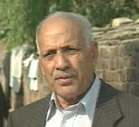| Tue. July 01, 2025 |
 |
|
||
|
||||
| ||||

By K.N. Pandita
By its own choosing, Pakistan has made a laughing stock of itself in the eyes of Commonwealth countries. Feeling elated over hosting the 61st Commonwealth Parliamentary Conference in Islamabad from 30 September to 8 October, Pakistan National Assembly Speaker Sardar Ayaz Sadiq had singled out the Speaker of Jammu and Kashmir Legislative Assembly for non-invitation to the CPC. This was on the grounds that some unspecified UN Resolution created constraints for Pakistan to extend the invitation to that Speaker. The Pakistan National Assembly Speaker’s decision was a blatant violation of the Constitution of the CPA. Moreover, the Speaker ignored the Chairperson as well as the Executive Committee of the Conference. He took an arbitrary decision of not inviting the Speaker of J&K Assembly from ‘India Region’ just because Pakistan disputes accession of the Jammu and Kashmir (J&K) State to the Indian Union.
This shows that by refusing to invite J&K Speaker, Pakistani hosts were indirectly pushing Pakistan’s political agenda and not the agenda of the Commonwealth countries. Pakistani ruling circles wanted to draw political mileage out of the Commonwealth conference, which evidently meant defeating the very purpose of the conference.
Obviously, by not inviting the J&K Assembly Speaker to the Conference, Pakistan wanted to create an impression that Commonwealth countries indirectly accepted that J&K was not integral part of the Indian Union, and thus endorse the contention of Pakistan that the accession of J&K to the Indian Union was not cognizable.
With the London-based head office of the Commonwealth Parliamentary Association terming (in its communiqué) the decision of Pakistani Speaker as blatant “violation of Articles 10(2) (e) and 11(4) (d) of its Construction," announced change of venue of conference from Islamabad to London.
Article 8 of the CPA Constitution says that each 'Branch' (meaning Parliament and State Assemblies) "shall be entitled to send prescribed number of delegates and officials to each plenary conference and accordingly Jammu and Kashmir Branch is entitled to send one delegate to the Conference. Additionally, J&K fulfills the conditions of viability something that is already recognized by the CPA.
This episode has proved that, for Pakistan, the sum and substance of continuing as a member of the Commonwealth is not to strengthen the high ideals of cooperation among Commonwealth members for improvement of economic life of millions of people of erstwhile colonial power but to push its political agenda of coveting territories through unleashing of armed infiltration and insurgencies in a neighbhouring country.
There are no two opinions about such intentions. The question arises that when the Commonwealth head office in London is convinced of anti-democratic and anti-Commonwealth policy of a member state. Should it not expel it from the forum for all time (or at least for five years) with the clear objective of maintaining transparency in conducting its formal business? That is the lowest price the erring member-state should have to pay for taking the forum for a ride.
Simple logic shows that India should make a resolution in the impending London meeting to issue a show cause notice to Pakistan why it should not be expelled from the organization for a period of five years on the basis of willful violation of the Constitution of the CPA. India should move fast and lobby the members of the Commonwealth for supporting such a resolution.
India has to make it clear to them that demand for such an action does not reflect any vengeful action but is a solid step towards observing the rules and regulations and maintaining discipline in a very prestigious organization.
Even if India does not succeed in winning over majority opinion to her proposal of expulsion of Pakistan, it will at least end up in a censure motion against Pakistan for violation of constitutional propriety. Commonwealth members have to reflect in one way or the other that they strictly endorse not allowing members to raise bilateral issues in various fora of the Commonwealth.
Finally, the timely move of the Speaker of the Indian Parliament of calling a meeting of all the 31 Speakers of State Assemblies to discuss the question of no-invitation to J&K Assembly Speaker and passing of a unanimous resolution for boycott of Islamabad Conference was a correct and befitting response to shady intentions of Pakistan. It is also behooves the Speaker of the Indian Parliament to thank the CPA headquarters for formally recognizing that J&K is an integral part of the Union of Indian States.
K.N. Pandita is the former Director of the Centre of Central Asian Studies, Kashmir University, India
| Comments in Chronological order (0 total comments) | |
| Report Abuse |
| Contact Us | About Us | Donate | Terms & Conditions |
|
All Rights Reserved. Copyright 2002 - 2025